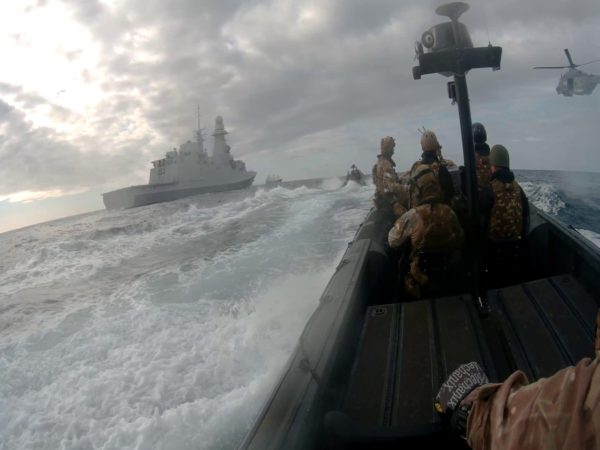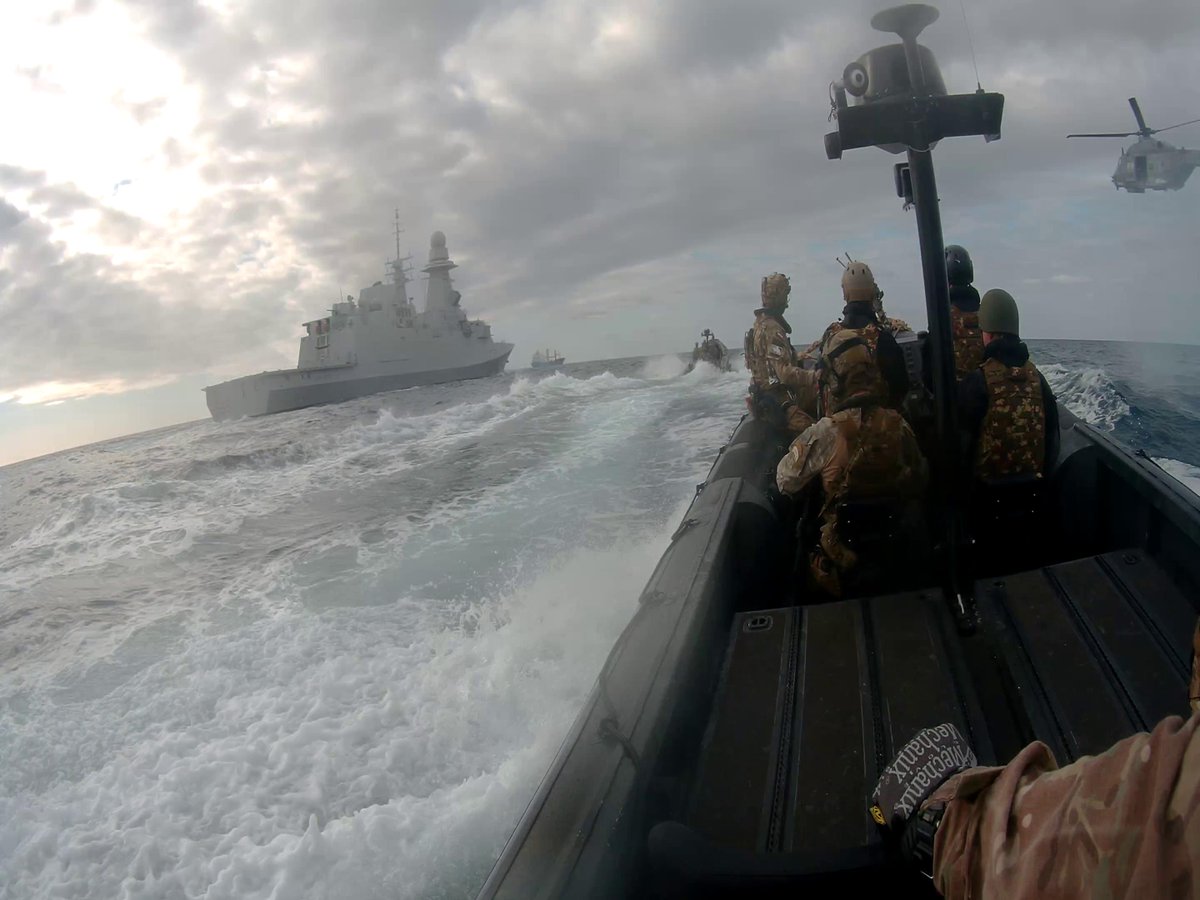Operation Sophia, EUBAM Rafah and Libya… the EU must learn to close missions that have become useless
(B2) Common security and defense missions and operations are today somewhat the neglected children of the European Union's foreign policy (CFSP). They attract very little attention today from European officials. Some missions and operations are no longer effective or have reached the end of their possibilities. It's time to learn the lesson and dare to close them!

Healthy weight loss
Instead of 16 missions/operations today, the EU could have, in the fairly short term, 7 missions with the same efficiency. Of course, these closures would lead to an inglorious result. But it's not the number that matters or a pin on the map. What is vital is what these missions 'deliver' in terms of results/costs ratio in relation to their primary objective: stabilization.
Three missions - operations must be closed
According to our analysis, three missions - operations (at the very least) can be closed, immediately, because they no longer meet the defined minimum criteria or simply no longer have the means to assume their tasks.
EUNAVFOR Med / Sophia (Rome)
The initial presupposition of this military maritime operation created in 2015 – to fight against human trafficking as close as possible to the Libyan coast – has never been achieved. The Europeans never obtained the Libyans to be able to act in their territorial waters or on the coasts (and exerted little pressure for this). The political consensus that presided over its existence no longer exists today: Italy no longer wants to welcome possible people gathered at sea. And no country wants to take on this task. One by one, several contributors (Belgium, United Kingdom, Germany, etc.) withdrew to the point that Operation Sophia no longer has the minimum presence at sea to carry out these missions: a single frigate ( Italian) permanently at sea, with another (French) as reinforcement from time to time (read: FS Jacoubet in Operation Sophia: to break Italian solitude?).
It's not so much that the operation was completely unworthy. It's just that the context has changed. The flow of migrants from Libya to Italy is no longer at the peak reached in the years 2015-2016, it has returned to a 'normal' situation; attention is focused more on Spain, Greece or the Balkans. In a way, the job is done. The only task that can be kept - the function of training Libyan coastguards and sailors - can very well be carried out by a lighter mission (of the EUTM type).
EUBAM Libya (Tunis / Tripoli)
This civilian mission born after 2011 and supposed to help the Libyans strengthen their borders has never been able to take off. If it has succeeded in proving its usefulness by carrying out feasibility studies, by shuttling with officials … it remains rather meager for a formidable cost: around 62 million euros for 18 months. Honestly, two or three good advisers to the EU Delegation for Libya would do exactly the same job.
EUBAM Rafah (Tel Aviv)
This civilian mission, one of the oldest in the EU (created 14 years ago), aimed to serve as an honest observer at the Rafah border post. The irruption of Hamas in the Gaza Strip, more than ten years ago, forced the mission to remain on the jump seat of action. Despite several hopes or attempts, no operational recovery could take place. The mission is reduced to doing a little advice or planning. Cost: 2 million euros per year. That's expensive for a job that can be done very well in the EU delegation in Tel Aviv.
Two missions with questionable efficiency
One can also ask questions about the real effectiveness of EUCAP Somalia, based in Mogadishu. Its tasks (reinforcement of maritime security) could be transferred to an EU anti-piracy operation or merged with those of EUTM Somalia, the military training operation which also suffers from an unsupported understaffing. As for the consulting mission EUAM Iraq based in Baghdad and launched in 2017, it is struggling to show results.
These two missions have a substantial budget in view of the results: 66 million for 2 years for EUCAP Somalia and 65 million euros for 18 months for EUAM Iraq (Read: CSDP missions and operations. Budget, personnel, command… ). It is necessary in the medium term to consider their closure.
Two missions in braking mode
Finally two missions are said in 'phasing out', i.e. in the file handover phase, but their closure seems to be spread over time: EULEX Kosovo (read : The EULEX Kosovo mission being closed) or EUPOL Copps Palestine which is now blocked in its evolution by the Palestinian blockage on the reforms. The transition to other structures must be accelerated.
Missions passed under the political radar
CSDP missions and operations currently attract very little attention from European leaders. At best it's an annoyance, at worst a burden. The momentum that has prevailed in recent years has broken down due to a lack of voluntarism in Brussels and in the Member States. It's undeniable.
Few missions and operations launched
In five years, despite an enthusiasm that cannot be denied, Federica Mogherini has had a very poor track record in terms of operations. Under his mandate, only three military missions and operations were launched: EUNAVFOR Med / Sophia in 2015, EUTM Rca in 2015-2016 and EUAM Iraq in 2017 (1). This represents the slowest pace of a term of High Representative. Even under Lady Ashton, whom we did not hesitate to criticize here, the results were more glorious with six civilian missions and two military missions-operations prepared or launched.
Few initiatives
This meager record cannot be blamed solely on the Member States. Few initiatives have been prepared or launched. According to our information, there is nothing in the cards: neither on the training of security or military forces in Ukraine (just advice), nor on support for Barkhane, nor on an observation force in Colombia, etc. .
Heads of missions shave the walls
History not to make waves, the missions and operations are 'closed'. Heads of Mission and Operation have received an informal instruction to communicate minima at the European level. For more than two years now, heads of mission and operations have been hugging the walls when they pass through Brussels. There are no more press briefings, no more public reports from heads of missions/operations to the European press, zero visits or press trips on site. Interviews are done in spades. The passage before the parliamentary committees of these leaders is rare... while the various heads of NATO missions parade there regularly. A paradox...
CSDP 'fatigue'?
The High Representative is not solely responsible for this development. The common security and defense policy (CSDP) no longer really arouses the attention and momentum of the Member States.
France no longer believes in it
France, which has been one of the notable drivers of a good majority of CSDP missions and operations in the past, does not " believes more ". She's not the only one. The reasons are multiple and deserve to be deciphered. We can cite at least five of them: the lack of solidarity on Mali, the refocusing on NATO, the lack of rigor of certain missions and operations, the problems encountered by several senior French officers, and an imperceptible feeling of 'disappropriation' .
Neither do the others
Other countries, such as Belgium which has been a notable 'piece' of the CSDP, have also lost faith, for other reasons, in political priority. Germany is not really driving as it could be before (for Afghanistan for example). Italy is in a fallback position. Etc. Now, without a 'push' from a member country, difficult to do a mission.
The trend towards conservatism
Everyone – Member States like the structure of the EEAS, the High Representative – knows the situation. However, everyone is reluctant to 'close' a mission or operation. Sometimes, there are understandable reasons: the risk of instability remains latent and/or the operation responds to the desire of several countries to remain present (EUFOR Althea, EUNAVFOR Atalanta), the mission is part of an international agreement of pacification (EUMM Georgia). Sometimes, there aren't really any reasons, other than the tendency to keep acquired positions, the desire to keep a certain number of anchor points in certain countries... like open positions.
(Nicolas Gros-Verheyde)
Read also:
- Clear reduction in CSDP missions/operations by 2018. The end of an era?
- What future for CSDP? A certain reorganization of the missions and operations of the CSDP … as of NATO?
- If the EUCAP Sahel Mali mission was launched in January 2015, all the preparation was already completed. It cannot be put on the balance sheet of the current High Representative.
